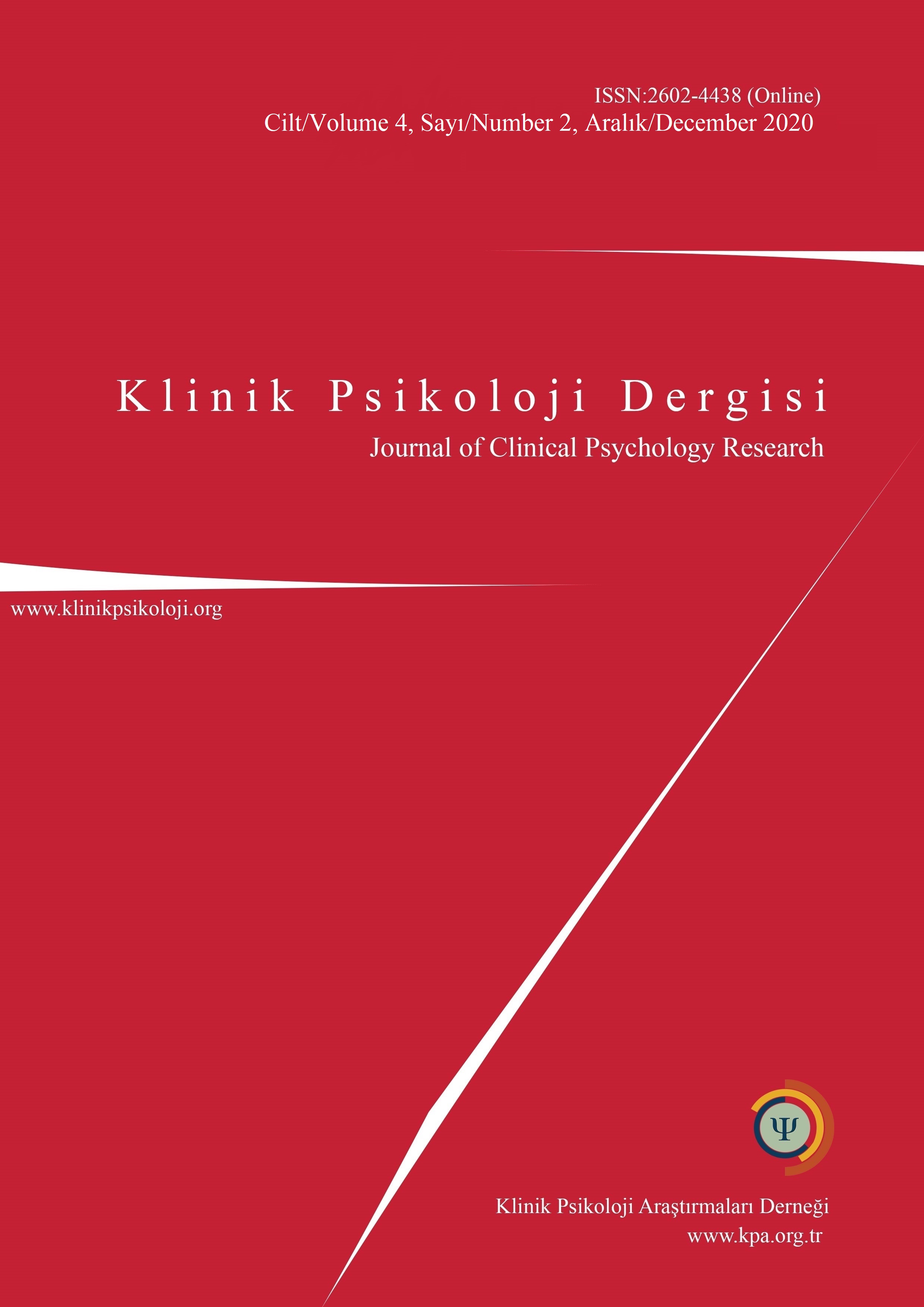Tükendim, tükendim, tükendim artık! Üniversite öğrencilerinde tükenmişliğe neden olan faktörler
I am burnout now! factors leading to burnout in university students
Author(s): Leman Korkmaz, Deniz Derin Yurtören, Tuna TümözenSubject(s): Social Sciences, Psychology, Higher Education
Published by: Klinik Psikoloji Araştırmaları Derneği
Keywords: burnout; depersonalization; university students; personal needs; self-efficacy;
Summary/Abstract: Burnout, including emotional exhaustion, depersonalization, and personal accomplishment dimensions,stems from excessive involvement at work. This research comprising two different studies investigated the antecedents of burnout in university students. In the first study, in order to investigate the roles of demographic and environmental/ task-related factors on burnout, 209 students aged between 18-26 were applied a questionnaire including Demographic Information Form, Maslach Burnout InventoryStudent Scale (MBI-SS) and an Assessment Form evaluating the environmental/ task-related factors leading to burnout. Results showed that demographic factors such as the grades and departments of students and environmental/ task-related factors such as excessive work of courses and not getting along with people in the department were predictive for different dimensions of burnout. Being dissatisfied with the department was the only environmental/ task-related factor predicting all dimensions of burnout. In the second study, the roles of self-efficacy and personal needs namely achievement, power, and affiliation needs on burnout was investigated by controlling the effects of demographic factors. For this purpose, students completed a questionnaire, including Demographic Information Form, New Needs Assessment Questionnaire, Maslach Burnout Inventory-Student Scale, and Self-efficacy Scale. Results revealed that by controlling the effects of demographic factors, self-efficacy predicted the personal accomplishment dimension, the need for affiliation predicted emotional exhaustion dimension, and the need for achievement predicted all dimensions of burnout. We expect that the findings guide studies and intervention programs aiming to decrease burnout’s negative influence.
Journal: Klinik Psikoloji Dergisi
- Issue Year: 4/2020
- Issue No: 2
- Page Range: 106-123
- Page Count: 18
- Language: Turkish

